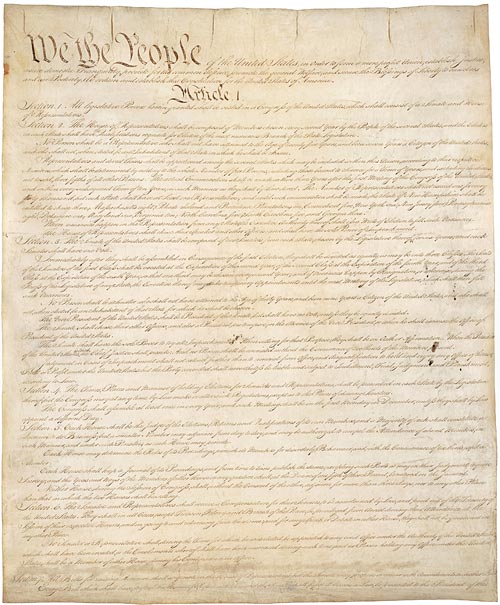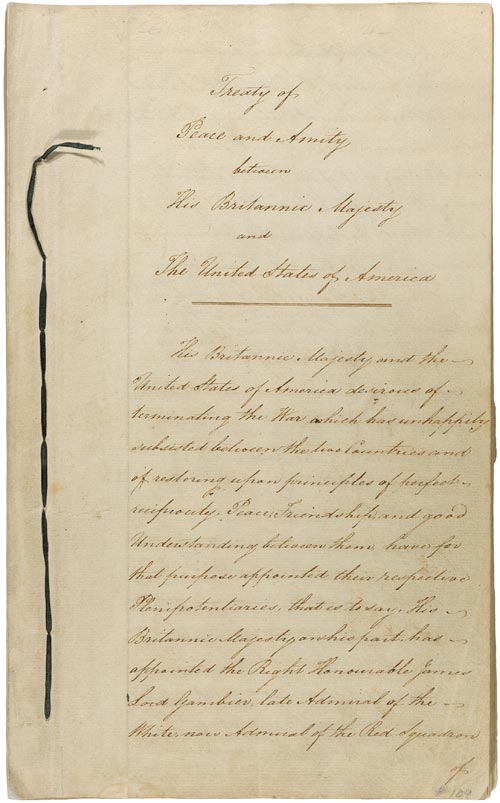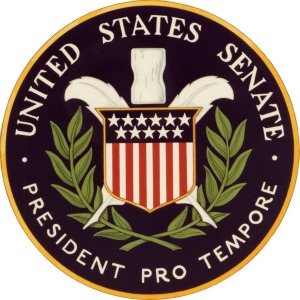

1789
_federal_hall_side_l.jpg)
March 21
Richard Bassett, one of Delaware’s first two senators, took his seat in the U.S. Senate, which was meeting at Federal Hall in New York City. The Senate had convened on March 4, but because only eight senators were present, there were not enough to constitute a quorum. The body was forced to adjourn each day until April 6, when it achieved its first quorum of 12 members, out of the eligible 22.
1789
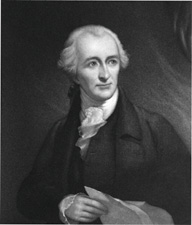
April 13
George Read, Delaware’s second senator, presented his credentials to the Senate and took his seat.
1789
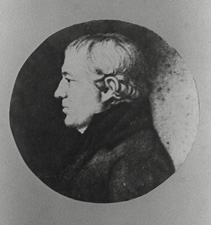
May 15
The senators drew lots to determine the three classes of senators. George Read was assigned to Class 1 (with a two-year term to expire in 1791), while Richard Bassett was assigned to Class 2 (with a four-year term to expire in 1793).
1794
March 28
By a vote of 20 to 7, the Senate refused to seat Kensey Johns. Johns had been appointed by Delaware governor Joshua Clayton after the state legislature proved unable to agree upon a replacement for Senator George Read, who had resigned. In refusing to seat Johns, the Senate agreed that Governor Clayton had violated a constitutional provision that restricted gubernatorial appointments to periods when state legislatures were in recess.
1804
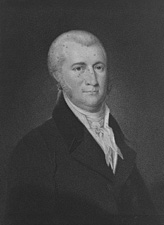
November 13
James A. Bayard Sr. of Wilmington became the first of five Bayards to represent Delaware in the Senate.
1833
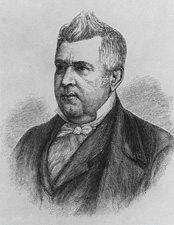
December 16
John M. Clayton of Dover became chairman of the Senate Committee on the Judiciary, a position he held until 1836.
1857
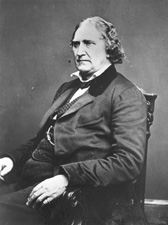
December 16
James A. Bayard Jr. of Wilmington became chairman of the Senate Committee on the Judiciary, a position he held until 1861.
1864
November 29
Senator James A. Bayard Jr. resigned his seat in protest of the Test Oath, which required senators to swear not only to future loyalty but also to affirm that they had never previously engaged in disloyal conduct.
1870
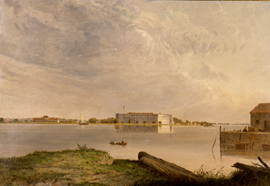
Seth Eastman accepted a commission to paint a series of 17 canvases depicting army forts, including Fort Delaware, Delaware.
1871

November 17
The Delaware legislature elected Eli Saulsbury of Dover to replace his brother, Willard, in the U.S. Senate. Willard Saulsbury had been poised for reelection to his Senate seat when he found himself in a three-way race against his two elder brothers, Gove and Eli.
1879
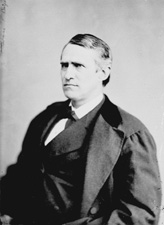
March 19
Thomas F. Bayard Sr. of Wilmington became chairman of the Senate Committee on Finance, a position he held until 1881.
1896
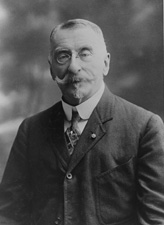
May 15
The Senate resolved the contested election of Henry A. du Pont of Winterthur, voting against his seating. Du Pont filed a second petition in January 1897, which the Committee on Privileges and Elections reported on unfavorably in March. The Class 2 Senate seat remained vacant from March 4, 1895 to January 18, 1897. Du Pont was subsequently elected to the Senate by the state legislature in 1906.
1897

March 19
A petition was submitted on behalf of John E. Addicks, who claimed to have been legally elected by the state legislature and contested the right of Senator Richard R. Kenney to his seat. The Senate referred the petition to the Committee on Privileges and Elections, but the committee issued no report and Senate took no further action on the matter.
1898

April 2
Senator Henry A. du Pont received the Congressional Medal of Honor for "his distinguished gallantry, and voluntary exposure to the enemy's fire at a critical moment [during the Civil War], when the Union line had been broken, encouraged his men to stand to their guns, checked the advance of the enemy, and brought off most of his pieces."
1899
March 13
The state legislature was unable to agree on a candidate for the Class 1 Senate seat, which remained vacant until 1903. In 1901, the legislature failed to elect a successor for the Class 2 seat. Delaware remained unrepresented in the U.S. Senate from March 4, 1901 until March 1, 1903.
1910
Senator Henry A. du Pont arranged for the appointment of a local Capitol Hill newsboy, J. Franklin Little, to be a Senate page. More than 70 years later, Little shared his reminiscences of events in his life as a page with the Senate Historical Office.
1911
April 27
Senator Henry A. du Pont became chairman of the Senate Committee on Military Affairs (precursor to today's Armed Services Committee), a position he held until 1913.
1913
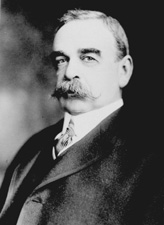
March 5
Senator Willard Saulsbury Jr. of Wilmington became secretary of the Democratic Conference, a position he held until 1916.
1916
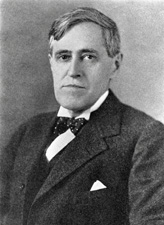
November 7
Josiah O. Wolcott of Dover became Delaware’s first directly elected senator after the adoption of the Seventeenth Amendment to the Constitution in 1913.
1916
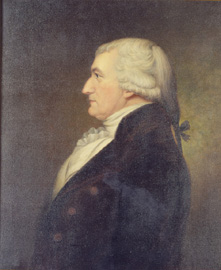
December 23
The Joint Committee on the Library accepted portraits of James and Henry Latimer of Newport by Delaware artist Clawson Hammitt. In 1787 James Latimer presided over Delaware’s convention to ratify the Constitution. Henry Latimer, the son of James Latimer, served in the Senate from 1795 until 1801.
1934
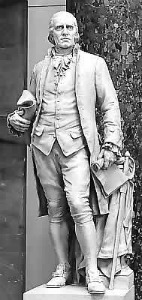
Congress accepted statues of Caesar Rodney of Dover and John Middleton Clayton of Dover, Delaware’s two contributions to the National Statuary Hall Collection. Both marble statues are the work of sculptor Bryant Baker.
1946

April 8
The Senate passed by unanimous consent a bill authorizing the State of Delaware to construct, maintain, and operate a toll bridge across the Delaware River, now known as the Delaware Memorial Bridge, near Wilmington. The president signed the act on July 13, 1946.
1981
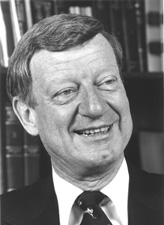
January 5
William V. Roth Jr. of Wilmington became chairman of the Senate Committee on Governmental Affairs (today's Committee on Homeland Security and Governmental Affairs), a position he held until 1987, and again in 1995.
1987
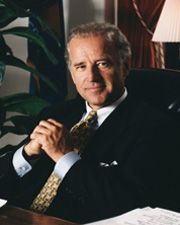
January 6
Joseph R. Biden Jr. of Wilmington became chairman of the Senate Committee on the Judiciary, a position he held until 1995.
1994
December 30
William V. Roth Jr. became Delaware's longest-serving senator at the time, with 23 years, 11 months, and 30 days in office. He surpassed John J. Williams of Millsboro. Roth ended his Senate career having served for 30 years and 2 days.
1995
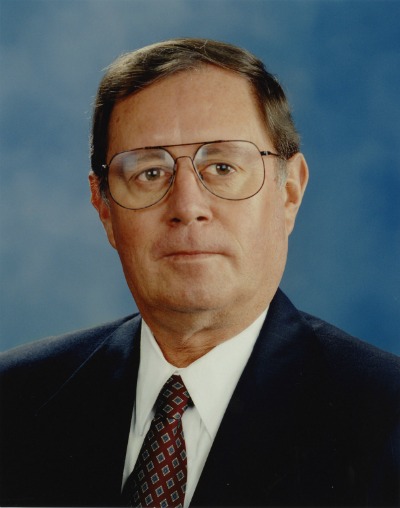
January 4
Howard O. Greene of Delaware was chosen to be the Senate’s sergeant at arms, a position he held until September 6, 1996.
1995
October 12
William V. Roth Jr. became chairman of the Senate Committee on Finance, a position he held until 2001.
2001
January 3
Joseph R. Biden Jr. became chairman of the Senate Committee on Foreign Relations, a position he held until January 20, 2001. Biden chaired the committee again from June 2001 to January 3, 2003, and again in 2007.
2002
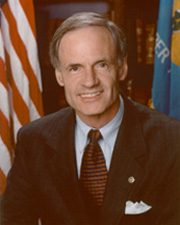
Senator Tom Carper of Wilmington received the Golden Gavel Award for presiding over the Senate for 100 hours in a single session.
2003
January 6
Joseph R. Biden Jr. became Delaware's longest-serving senator, surpassing Bill Roth's record of 30 years, 2 days. Senator Biden went on to serve a total of 36 years and 13 days.
2008
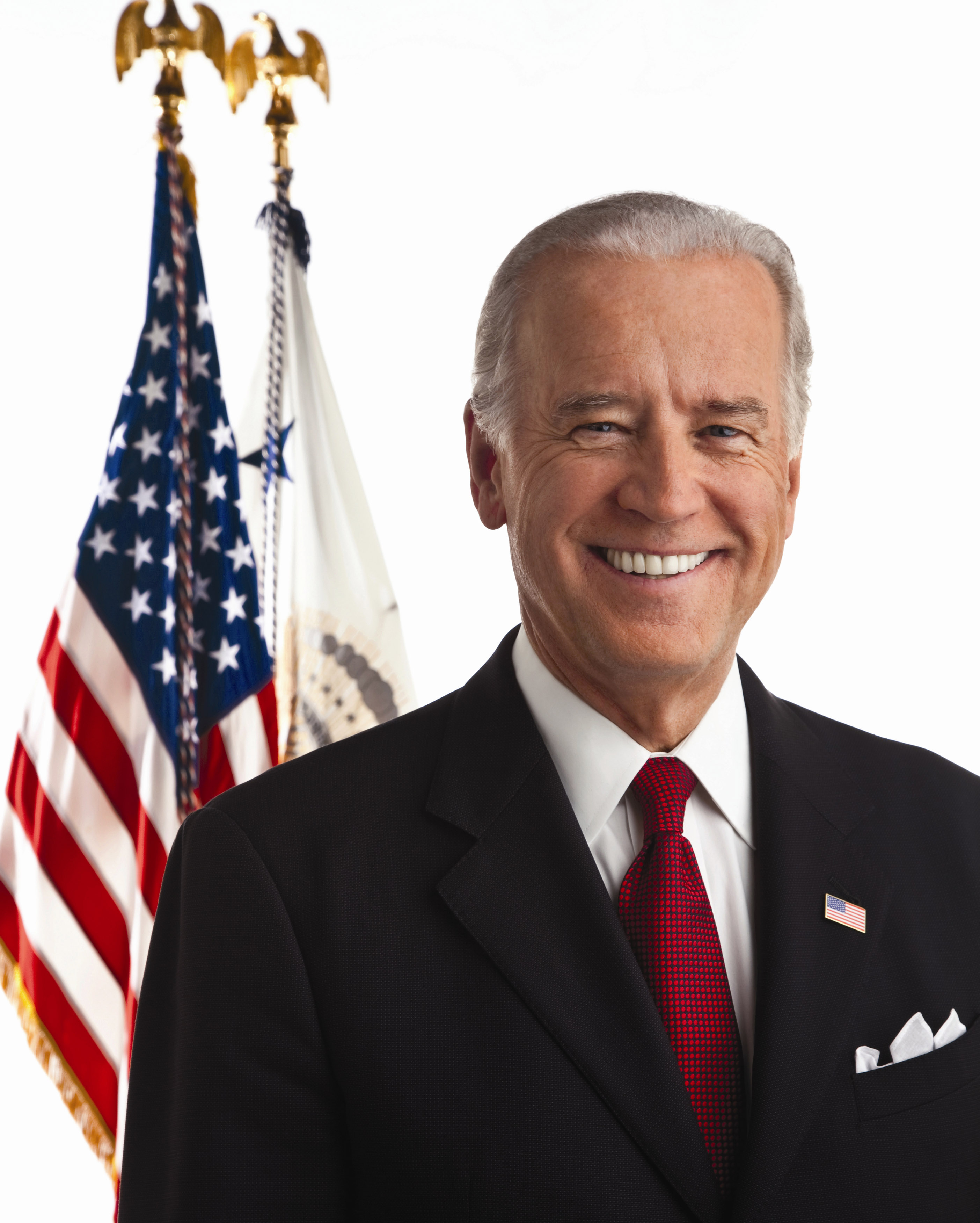
August 28
Senator Joseph R. Biden Jr. was nominated for vice president of the United States on the ticket with fellow senator Barack Obama of Illinois. Biden and Obama won the election in November 2008 and were inaugurated on January 20, 2009.
2009
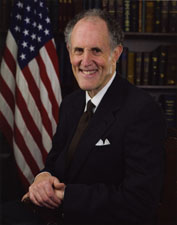
November 20
Senator Ted Kaufman of Wilmington received the Golden Gavel Award for presiding over the Senate for 100 hours in a single session..


